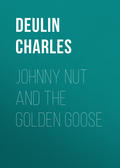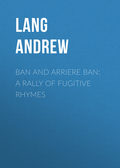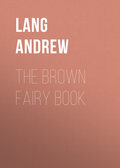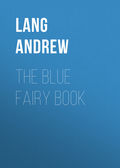
Lang Andrew
Lost Leaders
CLUB BORES
The London Club has been sitting in a judicial way on one of its members. This member of the Club seems to have been what Thackeray’s waiter called “a harbitrary gent.” The servants of the club had to complain that he did not make “their lives so sweet to them that they (the servants) greatly cared to live,” if we may parody Arthur’s address to his erring queen. The Club has not made a vacancy in its ranks by requesting the arbitrary member to withdraw. But his conduct was deemed, on the report of the Committee, worthy of being considered by the Club. And that is always something. In an age when clubs are really almost universal, most men have had occasion to wish that their society would sit occasionally on some of the members. The member who bullies the servants is a not uncommon specimen of the club-bore. He may be called the bore truculent. He has been excellently caricatured by Thackeray in the “Book of Snobs.”
There we have the club-bore who makes such a fuss about his chop, and scolds the waiter so terribly. “Look at it, sir; is it a chop for a gentleman? Smell it, sir; is it fit to put on a club table?” These, or such as these, are the words of the gallant terror of waiters. Now it is clearly unjust to make a waiter responsible for the errors, however grave, of a very different character, the cook. But this mistake the arbitrary gent is continually making. The cook is safe in his inaccessible stronghold, down below. He cannot be paraded for punishment on the quarter-deck, where Captain Bragg, of the Gunboat and Torpedo Club, exercises justice. Therefore the miserable waiter is rebuked in tones of thunder because the Captain’s steak is underdone, or because Nature (or the market gardener) has not made the stalks of asparagus so green and succulent as their charming tops. People who do not know the scolding club-bore at home are apt to be thankful that they are not favoured with his intimate acquaintance, and are doubly grateful that they are not members of his family. For if, in a large and quiet room full of strangers, a man can give loose to his temper without provocation, and outroar the thunder, what must this noisy person do at home? “In an English family,” says a social critic, “the father is the man who shouts.” How the club-bore must shout when he is in his own castle, surrounded only by his trembling kindred and anxious retainers! In his castle there is no one to resist or criticise him – unless indeed his wife happen to be a lady, like Clytemnestra, of masculine resolution. In that case the arbitrary gent may be a father of a family who is not allowed to shout at home, but is obliged to give nature free play by shouting abroad.
There are plenty of other club-bores besides the man who rates these generally affable and well-behaved persons, the club servants. One of the worst is the man whom you never see anywhere except at the club, and whom you never fail to see there. It is bad enough when you have no acquaintance with him. Murders have probably been committed by sensitive persons for no better reason (often for worse reasons) than that they are tired of seeing some one else going about. His voice, his manner, his cough, especially his cough, become unendurable. People who cough in clubs are generally amateurs of the art. They are huskier, more wheezing, more pertinacious in working away at a cough till they have made it a masterpiece than any other mortals. We believe that club Asthmats (it is quite as good a word as “Æsthetes”) practise in the Reading Room of the British Museum, where they acquire their extraordinary compass and mastery of various notes. Be this as it may, the cough which drives every one but its owner out of the room (though doubtless an affliction to the proprietor) gives him rank as a club-bore of the finest water. The bore who always enters into conversation, though he has nothing to say, merely because you used to dislike him at school, or college, or elsewhere, is another common annoyance. The man who is engaged, apparently, on a large work, and who rushes about the library hunting for Proclus and Jamblichus when other occupants of the room wish to be quiet, is naturally detested.
Most men are the bores of some other person. People of watchful mind and intelligent habit, who talk in the drawing-room, are regarded as bores by fat old gentlemen who wish to sleep there. And as these gentlemen turn the drawing-room into a dormitory, which resounds with their snoring, they in turn are bores to people who wish to read the papers. But if these students drop the poker with a clang, or dash down small tables in order to waken the sleepers, they, in their turn, give a good deal of annoyance. The man who talks about politics at great length, is only one of the common bores of the world transported into a club. But the man with a voice which in ordinary conversation pierces through all the hum of voices, like a clarion note in battle, would be a bore anywhere. If he were in the wilderness of Sinai, he would annoy the monks in the convent near the top. His voice is one of those terrible, inscrutable scourges of nature, like the earthquake and the mosquito, which tax our poor human wisdom to reconcile with any monistic theory of the benevolent government of the universe. Once admit an evil principle, however, and the thing is clear. The club-bore with the trumpet tones, which he cannot moderate, is possessed, on this theory, by a fiend. As men are talking quietly of turnips in one corner of the room, of rent in another, and of racing in a third, his awful notes blend in from the fourth corner with strident remarks on Bulgarian philology.
The ancient Greeks were well accustomed to club life, for each of their little cities was only a large club. They had, therefore, to deal with the problem of bores. Some of them, consequently, had the institution of annually devoting to the infernal gods the most unpopular citizens. These persons were called catharmata, which may be freely translated “scapegoats.” Could not clubs annually devote one or more scapebores to the infernal gods? They might ballot for them, of course, on some merciful and lenient principle. One white ball in ten or twenty-black ones might enable the bore to keep his membership for the next year. The warning, if he only escaped this species of ostracism very narrowly, might do him a great deal of moral good. Of course the process would be unpleasant, but it is seldom agreeable to be done good to. Occasionally even the most good-natured members would stand apart, not voting, or even would place the black ball in the mystic urn. Then the scapebore would have his subscription returned to him, and would be obliged to seek in other haunts servants to swear at, and sofas to snore on. Another suggestion, that members should be balloted for anew every five years, would simply cause clubs to be depopulated. Pall-Mall and St. James’s would be desolate, mourning their children, and refusing comfort. The system would act like a proscription. People would give up their friends that they might purchase aid against their enemies. Clubs are more endurable as they are, though members do suffer grievously from the garrulity, the coughs, the slumbrous tendencies, and the temper of their fellow-men.
PHIZ
Mr. Hablot K. Browne, better known as Phiz, was an artist of a departed school to whom we all owe a great deal of amusement. He was not so versatile nor so original as Cruickshank; he had not the genius, nor the geniality, still less the sense of beauty, of John Leech. In his later years his work became more and more unequal, till he was sometimes almost as apt to scribble hasty scrawls as Constantin Guys. M. Guys was an artist selected by M. Baudelaire as the fine flower of modern art, and the true, though hurried, designer of the fugitive modern beauty. It is recorded that M. Guys was once sent to draw a scene of triumph and certain illuminations in London, probably about the end of the Crimean War. His sketch did not reach the office of the paper for which he worked in time, and some one went to see what the man of genius was doing. He was found in bed, but he was equal to the occasion. Snatching a sheet of paper and a pencil he drew a curve. “There,” said he, “is the triumphal arch, and here” – scribbling a number of scratches like eccentric comets – “here are the fireworks.” Mr. Browne’s drawings occasionally showed a tendency to approach the rudimentary sort of “pictograph” rather than give what a dramatic critic calls “a solid and studied rendering” of events. But many of Mr. Browne’s illustrations of Dickens are immortal. They are closely bound up with our earliest and latest recollections of the work of the “incomparable Boz.” Mr. Pickwick, we believe, was not wholly due to the fancy of Mr. Browne, but of the unfortunate Seymour, whom death prevented from continuing the series. Every one has heard how Mr. Thackeray, then an unknown man, wished to illustrate one of Mr. Dickens’s early stories, and brought Mr. Dickens examples of his skill. Fortunately, his offer was not accepted. Mr. Thackeray’s pencil was the proper ally of his pen. He saw and drew Costigan, Becky, Emmy, Lord Steyne, as no one else could have drawn them. But he had not beheld the creations of Boz in the same light of imaginative vision. Sometimes, too, it must be allowed that Mr. Thackeray drew very badly. His “Peg of Limavaddy,” in the “Irish Sketch Book,” is a most formless lady, and by no means justifies the enthusiasm of her poet. Thus the task of illustrating “Pickwick” fell to Mr. Browne, and he carried on the conceptions of his predecessor with extraordinary vigour. The old vein of exaggerated caricature he inherited from the taste of an elder generation. But making allowance for the exaggeration, what can be better than Mr. Pickwick sliding, or the awful punishment of Stiggins at the hands of the long-suffering Weller? We might wish that the young lady in fur-topped boots was prettier, and indeed more of a lady. But Mr. Browne never had much success, we think, in drawing pretty faces. He tried to improve in this respect, but either his girls had little character, or the standard of female beauty has altered. As to this latter change, there can be no doubt at all. Leech’s girls are not like Thackeray’s early pictures of women; and Mr. Du Maurier’s are sometimes sicklied o’er with the pale cast of an æsthetic period.
It is probable that the influence of Mr. Browne’s art reacted in some degree on Dickens. In the old times every one whom the author invented the artist was pretty certain to caricature. Thus the author may have felt the temptation to keep pace with the frolic humour of the artist. Mr. Browne cannot be blamed for a tendency to exaggerate noses and other features, which was almost universal in his time. None of us can say what conception would now be entertained of Dickens’s characters if Mr. Browne had not drawn them. In the later works of Dickens (when they were illustrated) other artists were employed, as Mr. Stone and Mr. Fildes. These are accomplished painters of established reputation, and they of course avoided the old system of caricature, the old forced humour. But we doubt whether their designs are so intimately associated with the persons in the stories as are the designs of Mr. Browne. The later artists had this disadvantage, that the later novels (except “Great Expectations,” which was not illustrated) were neither so good nor so popular as “Pickwick,” “Nicholas Nickleby,” “Martin Chuzzlewit,” “David Copperfield,” or even “Bleak House.” We never can have any Mr. Micawber but Phiz’s indescribably jaunty Micawber. His Mr. Pecksniff is not very like a human being, but his collars and his eye-glass redeem him, and after all Pecksniff is a transcendental and incredible Tartuffe. Tom Pinch is even less sympathetic in the drawings than in the novel. Jonas Chuzzlewit is also “too steep,” as a modern critic has said in modern slang. But in the novel, too, Mr. Jonas is somewhat precipitous. Nicholas Nickleby is a colourless sort of young man in the illustrations, but then he is not very vividly presented in the text. Ralph Nickleby and Arthur Gride may pair off with Jonas Chuzzlewit, but who can disparage the immortal Mr. Squeers? From the first moment when we see him at his inn, with the starveling little boys, through all the story, Mr. Squeers is consistently exquisite. In spite of his cruelty, coarseness, hypocrisy, there is a kind of humour in Mr. Squeers which makes him not quite detestable. In “David Copperfield” Mr. Micawber is perhaps the only artistic creation of much permanent merit, unless it be the waiter who consumed David’s dinner, and the landlady who gave him a pint of the Regular Stunning. In “Bleak House” Mr. Browne made some credible attempts to be tragic and pathetic. Jo is remembered, and the gateway of the churchyard where the rats were, and the Ghost’s Walk in the gloomy domain of Lady Dedlock.
It is a singular and gloomy feature in the character of young ladies and gentlemen of a particular type that they have ceased to care for Dickens, as they have ceased to care for Scott. They say they cannot read Dickens. When Mr. Pickwick’s adventures are presented to the modern maid, she behaves like the Cambridge freshman. “Euclide viso, cohorruit et evasit.” When he was shown Euclid he evinced dismay, and sneaked off. Even so do most young people act when they are expected to read “Nicholas Nickleby” and “Martin Chuzzlewit.” They call these masterpieces “too gutterly gutter;” they cannot sympathize with this honest humour and conscious pathos. Consequently the innumerable references to Sam Weller, and Mrs. Gamp, and Mr. Pecksniff, and Mr. Winkle which fill our ephemeral literature are written for these persons in an unknown tongue. The number of people who could take a good pass in Mr. Calverley’s Pickwick Examination Paper is said to be diminishing. Pathetic questions are sometimes put. Are we not too much cultivated? Can this fastidiousness be anything but a casual passing phase of taste? Are all people over thirty who cling to their Dickens and their Scott old fogies? Are we wrong in preferring them to “Bootle’s Baby,” and “The Quick or the Dead,” and the novels of M. Paul Bourget?
THEORY AND PRACTICE OF PROPOSALS
There is no subject in the whole range of human affairs so interesting to a working majority of the race as the theory and practice of proposals of marriage. Men perhaps cease to be very much concerned about the ordeal when they have been through it. But the topic never loses its charm for the fair, though they are presumed only to wait and to listen, and never to speak for themselves. That this theory has its exceptions appears to be the conviction of many novelists. They not only make their young ladies “lead up to it,” but heroines occasionally go much further than that, and do more than prompt an inexperienced wooer. But all these things are only known to the world through the confessions of novelists, who, perhaps, themselves receive confessions. M. Goncourt not long ago requested all his fair readers to send him notes of their own private experience. How did you feel when you were confirmed? How did Alphonse whisper his passion? These and other questions, quite as intimate, were set by M. Goncourt. He meant to use the answers, with all discreet reserve, in his next novel. Do English novelists receive any private information, and if they do not, how are we to reconcile their knowledge – they are all love-adepts – with the morality of their lives? “We live like other people, only more purely,” says the author of “Some Private Views,” which is all very well. No man is bound to incriminate himself. But as in the course of his career a successful novelist describes many hundreds of proposals, all different, are we to believe that he is so prompted merely by imagination? Are there no “documents,” as M. Zola says, for all this prodigious deal of love-making? These are questions which await a reply in the interests of ethics and of art. Meanwhile an editor of enterprise has selected five-and-thirty separate examples of “popping the question,” as he calls it, from the tomes of British fiction. To begin with an early case – when Tom Jones returned to his tolerant Sophia, he called her “Madam,” and she called him “Mr. Jones,” not Tom. She asked Thomas how she could rely on his constancy, when the lover of Miss Segrim drew a mirror from his pocket (like Strephon in “Iolanthe”), and cried, “Behold that lovely figure, that shape, those eyes,” with other compliments; “can the man who shall be in possession of these be inconstant?” Sophia was charmed by the “man in possession,” but forced her features into a frown. Presently Thomas “caught her in his arms,” and the rest was in accordance with what Mr. Trollope and the best authorities recommend. How differently did Arthur Pendennis carry himself when he proposed to Laura, and did not want to be accepted! Lord Farintosh – his affecting adventure is published here – proposed nicely enough, but did not behave at all well when he was rejected. By the way, when young men in novels are not accepted, they invariably ask the lady whether she loves another. Only young ladies, and young men whom they have rejected, know whether this is common in real life. It does not seem quite right.
Kneeling has probably gone out, though Mr. Jingle knelt before the maiden aunt, and remained in that attitude for no less than five minutes. In Mr. Howell’s “Modern Instance,” kneeling was not necessary, and the heroine kept thrusting her face into her lover’s necktie; so the author tells us. M. Théophile Gautier says that ladies invariably lay their heads on the shoulder of the man who proposes (if he is the right man), and for this piece of “business” (as we regret to say he considers it) he assigns various motives. But he was a Frenchman, and the cynicism of that nation (to parody a speech of Tom Jones’s) cannot understand the delicacy of ours. Mr. Blackmore (in “Lorna Doone”) lets his lover make quite a neat and appropriate speech, but that was in the seventeenth century. When Artemus Ward began a harangue of this sort, Betsy Jane knocked him off the fence on which he was sitting, and first criticising his eloquence in a trenchant style, added, “If you mean being hitched, I’m in it.” In other respects the lover of Lorna Doone behaved as the best authorities recommend.
Mr. Whyte Melville ventured to describe Chastelard’s proposal to Mary Stuart, but it was not exactly in Mr. Swinburne’s manner, and, where historical opinions disagree, no reliance can be placed on speeches which were not taken down by the intelligent reporters. Mr. Slope had his ears boxed when he proposed to Mrs. Bold, but such Amazonian conduct is probably rare, and neither party is apt to boast of it. He also, being accepted, behaved in the manner to which the highest authorities have lent their sanction, or, at least, he meant to do so, when the lady “fled like a roe to her chamber.” For all widows are not like widow Malone (ochone!) renowned in song. When Arbaces, the magician, proposed to Ione, he did so in the most necromantic and hierophantic manner in which it could be done; his “properties” including a statue of Isis, an altar, “and a quick, blue, darting, irregular flame.” But his flame, quick, blue, darting, and irregular as it was, lighted no answering blaze in the ice-cold breast of the lovely lone. When rejected (in spite of a splendid arrangement of magic lanterns, then a novelty, got up regardless of expense) Arbaces swore like an intoxicated mariner, rather than a necromaunt accustomed to move in the highest circles and pentacles. Nancy, Miss Broughton’s heroine, tells her middle-aged wooer, among other things, that she accepts him, because “I did think it would be nice for the boys; but I like you myself, besides.” After this ardent confession, he “kissed her with a sort of diffidence.” Many men would have preferred to go out and kick “the boys.”
Mr. Rochester’s proposal to Jane Eyre should be read in the works both of Bret Harte and of Miss Brontë. We own that we prefer Bret Harte’s Mr. Rawjester, who wearily ran the poker through his hair, and wiped his boots on the dress of his beloved. Even in the original authority, Mr. Rochester conducted himself rather like a wild beast. He “ground his teeth,” “he seemed to devour” Miss Eyre “with his flaming glance.” Miss Eyre behaved with sense. “I retired to the door.” Proposals of this desperate and homicidal character are probably rare in real life, or, at least, out of lunatic asylums. To be sure, Mr. Rochester’s house was a kind of lunatic asylum.
Adam Bede’s proposal to Dinah was a very thoughtful, earnest proposal. John Inglesant himself could not have been less like that victorious rascal, Tom Jones. Colonel Jack, on the other hand, “used no great ceremony.” But Colonel Jack, like the woman of Samaria in the Scotch minister’s sermon, “had enjoyed a large and rich matrimonial experience,” and went straight to the point, being married the very day of his successful wooing. Some one in a story of Mr. Wilkie Collins’s asks the fatal question at a croquet party. At lawn-tennis, as Nimrod said long ago, “the pace is too good to inquire” into matters of the affections. In Sir Walter’s golden prime, or rather in the Forty-five as Sir Walter understood it, ladies were in no hurry, and could select elegant expressions. Thus did Flora reply to Waverley, “I can but explain to you with candour the feelings which I now entertain; how they might be altered by a train of circumstances too favourable, perhaps, to be hoped for, it were in vain even to conjecture; only be assured, Mr. Waverley, that after my brother’s honour and happiness, there is none which I shall more sincerely pray for than yours.” This love is indeed what Sidney Smith heard the Scotch lady call “love in the abstract.” Mr. Kingsley’s Tom Thurnall somehow proposed, was accepted, and was “converted” all at once – a more complex erototheological performance was never heard of before.
Many of Mr. Abell’s thirty-five cases are selected from novelists of no great mark; it would have been more instructive to examine only the treatment of the great masters of romance. But, after all, this is of little consequence. All day long and every day novelists are teaching the “Art of Love,” and playing Ovid to the time. But what are novels without love? Mere waste paper, only fit to be reduced to pulp, and restored to a whiteness and firmness on which more love lessons may be written. 6







